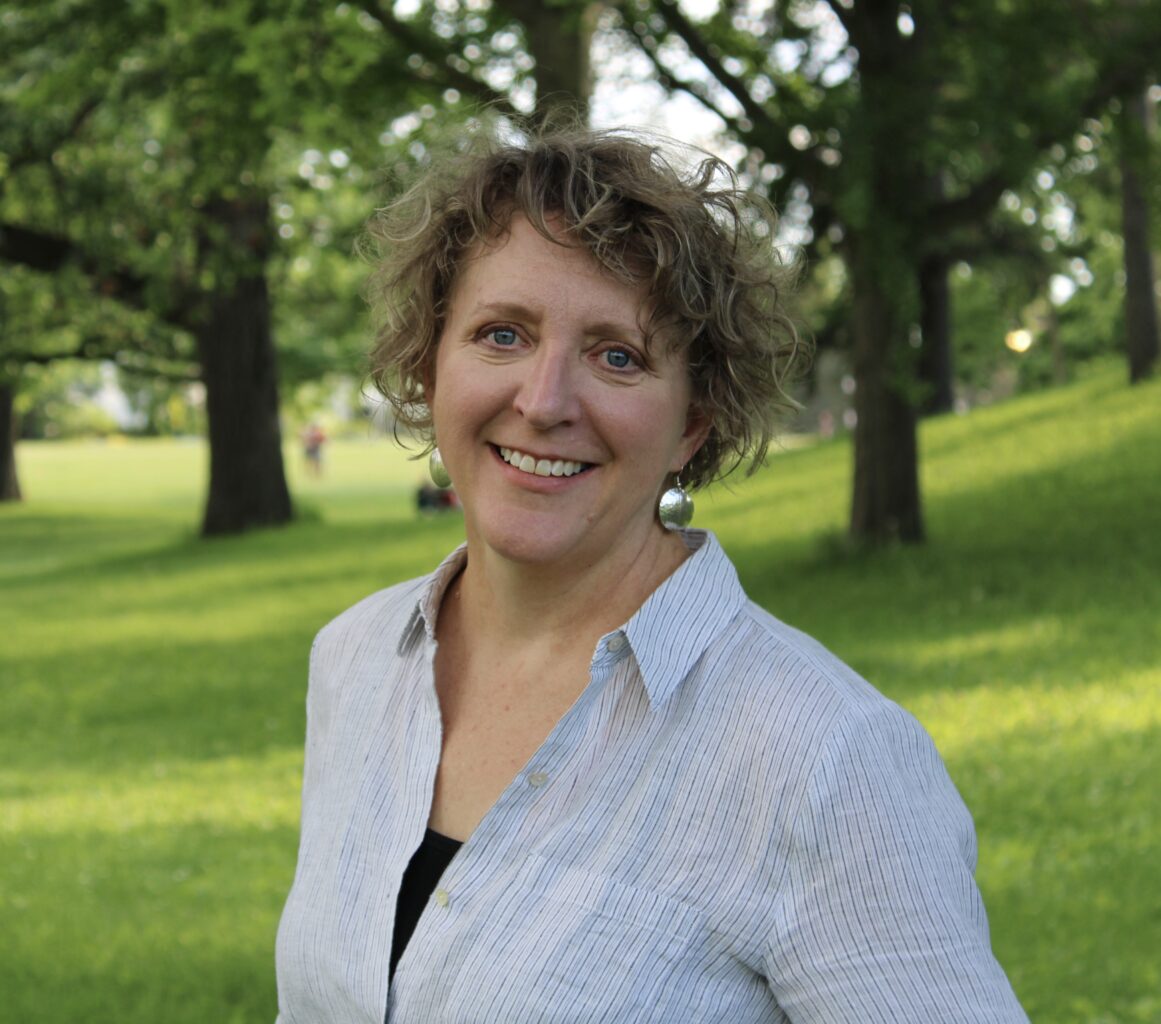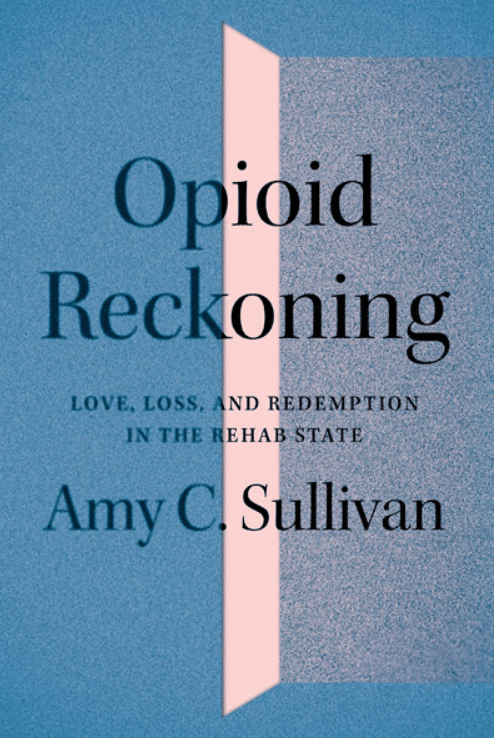Amy C. Sullivan, author of Opioid Reckoning: Love, Loss, and Redemption in the Rehab State
Emilie Buchwald Award for Minnesota Nonfiction, sponsored by Bookmobile
Each week leading up to the 34th annual Minnesota Book Awards Ceremony, we are featuring exclusive interviews with our 36 finalists. You can also watch the authors in conversation with their fellow category finalists here.

Would you tell us one or two things about your finalist book that you are particularly proud of, and why?
I am proud of how I conveyed the life stories of my narrators and earned their trust as a writer. Their generosity with painful, deeply personal stories emboldened my determination to write an empathetic and informative book that could help dismantle the stigma and shame associated with addiction and substance use disorders. If one person finds hope and healing as a result of reading this book, it will have been a success in my eyes. I don’t say that to be coy, either–too many people lack access to the care and information they need, and if my book can be part of helping change the outcomes for even a few people, I will be proud.
What do you hope that your audience learns or takes away from your book?

I hope my book opens minds and creates new conversations about how we can end the opioid epidemic and stop criminalizing addiction. Reading about the experiences of people on all sides of the problem can build empathy and understanding–something desperately needed to prevent deaths, dismantle stigma, and improve access to care. I want readers to learn how Minnesota, because of its history in drug treatment, could play a pivotal, leadership role in ending the epidemic. Whether readers are familiar with the history of drug treatment or not, everyone has been or will be touched by addiction at some point in their lives–this book offers a compassionate and informative way of looking at a problem that is often hidden due to shame and misunderstanding. Although the stories are sometimes tough to read, there’s hope and promise in many of them, too.
What advice would you give to an aspiring writer with an interest in your category?
Think outside the box when it comes to writing non-fiction. Keep your audience in mind as you write. Give yourself ample time to research, brainstorm, and read all kinds of books on the subject you want to write about, not just non-fiction but also poetry, fiction, memoir, and journalism.
Tell us something about yourself that is not widely known.
I am an art school dropout! While I hope to get back to making art someday, I bide my time now with freehand embroidery projects.
Minnesota enjoys a reputation as a place that values literature and reading. If this sentiment rings true for you, what about our home state makes it such a welcoming and conducive place for writers?
I am so grateful for the writing community and its organizations in Minnesota! In 2012-13, I was part of the Loft Literary Center’s Mentor Series, where I was warmly introduced to how welcoming the community of writers and publishers is in our state. A few years later, I wrote a huge part of Opioid Reckoning in The Loft’s writing studios. And Open Book is such a gem of a place–a welcoming, creative space for writers, artists, and the public–just being in that building feels like I am being supported as a writer. These are just a few things I treasure.
Since the onset of the pandemic in early 2020, virtually everything about our lives has changed in some way. Has COVID-19 (and its fallout) impacted your writing habits and preferences? Has the unique zeitgeist of the past two years influenced your writing output in any other ways that you can pinpoint?
Drawing a blank here, which says a lot, actually. ;)
Amy C. Sullivan, PhD, is a professor of history at Macalester College.

